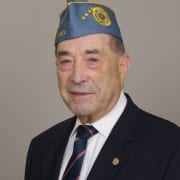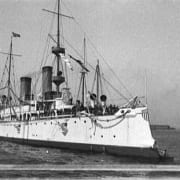The U.S. Space Command of the Future
By COL Nelson L Mellitz, USAF, Retired
There is a battle in the Washington D.C. political world and parts of the Pentagon about establishing an independent armed military service for U.S. command of space. This battle over establishing the “Space Force” involves: politics, costs, benefits, and the risks of creating a brand-new service taking resources away from the current military services.
Air Force Secretary Heather Wilson and Air Force Chief of Staff General David L. Goldfein are in favor of establishment of a Space Force as long as is done right. President Trump has directed that a “detailed” feasibility study on creating a Space Force be completed and submitted to him within the next few months. Acting Deputy Secretary of Defense Patrick M. Shanahan is leading a task force that is developing plans to form a Department of the Space Force from mostly the Air Force, with smaller pieces coming from the Army and Navy.
In September 1918, Army Colonel William “Billy” Mitchell led approximately 1,500 Allied aircraft in one of the first large scale air to ground attacks in history at the Battle of Saint-Mihiel, France. What COL Mitchell knew and others later realized was that warfare had forever changed and air superiority would play a pivotal role in all future conflicts. World War II proved this to be true, and 29 years later in 1947, Congress passed the National Security Act, creating the U.S. Air Force.
A century later it is time for the U.S. to build a modern and adaptive force capable of protecting our nation from current, emerging, and future threats in space. Our enemies are continuously seeking new ways to challenge our security. Russia, China, Iran, France, Great Britain, Israel, India, to name a few countries have already established a separate “Space Command” military branch. Our military’s ability to defend our interest and guarantee our access to space is a critical national security priority and it is in danger.
At a recent public meeting in D.C. high ranking officials from the Department of Defense, State Department, National Reconnaissance Office, and NASA weighed in on the Space Force proposal – no voices opposing the issue were heard and several specific recommendations on implementation were presented. Speakers at the meeting included Kevin McLaughlin, a three-star general who was deputy commander of U.S. Cyber Command during the Obama administration. Lt Gen McLaughlin stressed the need for DoD to create U.S. Space Command as a unified independent military branch. It is imperative that we develop and maintain our technological security and advantage in space. Our way of life depends on technological security and advantage in space, from instantaneous global communications to GPS signals for timing and navigation that enable transportation, commerce, and banking.
While some challenges remain, I support the establishment of a Space Command and the vision it holds to provide our men and women in uniform the resources and authority they need to develop and maintain U.S. military superiority in space. I am confident that the sixth branch of our armed forces will be led by dedicated Americans committed to protecting our freedom in space.
Volume 73. Number 1. 2019










